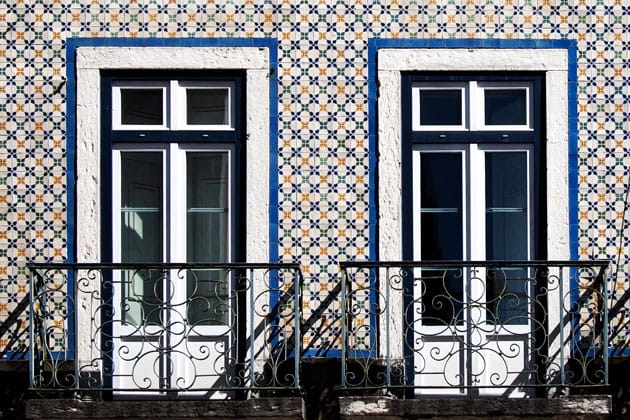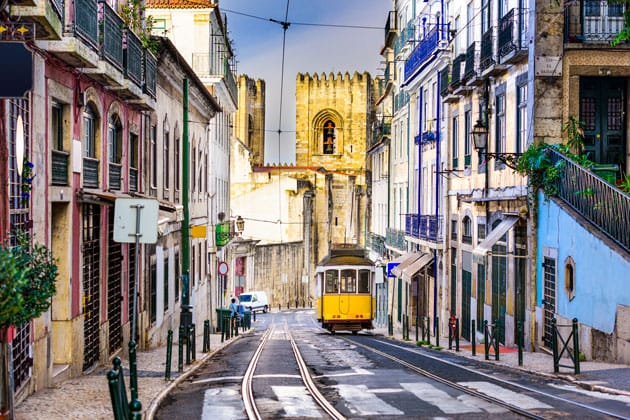
If you are considering buying a house in Portugal, you should know that it’s one of Europe’s most in-demand markets. Following a slight decrease in growth because of the Covid-19 pandemic, the Portuguese real estate market has picked up again.
“In 2020, despite the negative context due to Covid-19 related restrictions, housing prices continued to grow”, says the National Statistics Bureau in its Housing Prices Index report on the fourth quarter. In 2020 housing prices grew by 8.4%, which is 1.2 percentage points less than in 2019.
In 2021 the real estate market in Portugal continued to show signs of resilience. Between April and June housing prices rose by 6.6% in relation to the same period of 2020, according to the Housing Prices Index on the second quarter.
Housing prices: North to South
During the 12 months prior to June 2021 the four regions in Portugal with the highest median real estate prices per metre squared were in the Algarve (1.813 €/m2), the Lisbon Metropolitan Region (1.685 €/m2), the Autonomous Region of Madeira (1.363 €/m2), and the Porto Metropolitan Area (1 304 €/m2), according to figures from the INE “Local level Housing Prices Statistics”, regarding the second quarter.
A closer look, per region, shows that between July 2020 and June 2021 the highest median prices per metre squared could be found in Lisbon (3.418 €/m2), Cascais (2.894 €/m2), Oeiras (2.460 €/m2), Loulé (2.326 €/m2), Porto (2.244 €/m2), and Albufeira (2.094 €/m2).
Real estate. An attractive market for non-residents
The dynamic currently driving real estate prices has benefited from demand by non-residents. According to recent figures by INE, in 2019 non-residents bought 8.5% of all the houses sold in Portugal, accounting for a total of 13.3% of transactional value.

As with the two previous years, French residents made up the majority of purchases in Portugal, accounting for 27.7% of the total real estate purchased by non-residents, followed by UK residents, with 13.4%. Residents from both these countries also took the two top places in terms of value of real estate sold to non-residents.
Tax incentives, attractive prices, political stability, social peace, a warm climate, and great food are among the main reasons that drive non-residents to invest in the Portuguese real estate market.
Algarve, the most sought after… especially by British residents
By region, in 2019 the Algarve was the region preferred by non-residents looking to buy a house in Portugal, having seen 37.7% of the total invested value and 26.9% of the number of transactions.
UK residents were the most active non-resident buyers, a trend that has held steady since 2012. The British preference for the Algarve is corroborated by the “Resort Market in Portugal” report, undertaken by Confidencial Imobiliário, in partnership with the Portuguese Resorts Association (APR) and with the support of Turismo de Portugal. According to this survey, UK buyers reached a share of 44% in purchases by non-residents in resorts along the Albufeira-Loulé axis, the main resorts market, in the first semester of 2021.
Building instead of buying
If you prefer building from scratch instead of buying a ready-made house, then the first thing you need to do is obtain a construction license. Before that, however, there is a lot of work to do. If the terrain has not had any project approved, you will need to submit a Previous Information Request to the local municipality. When construction is approved, the next step is to have the land surveyed and get the architectural plan drawn up and approved by the municipality. This is followed by the utility’s plans, such as sewage, water, gas, electricity, and communications. Only when all these plans are approved can you get a construction license and start working.
To get an approximate idea of the value, taking into account the location, the size, and the surroundings, use this simulator from the Order of Architects. Don’t forget to add on the cost of acquiring the land.
Specifics of the Portuguese real estate market
Total area is one of the most important variables to bear in mind when looking for your house. Besides giving you an idea of the living conditions of the space, it is the figure used to calculate the price per metre squared of a house. This makes it important to understand how the area is measured in Portugal.
Traditionally, the criteria used in Portugal is the gross private area, which corresponds to the “total surface, measured by the outer perimeter and axes of the walls or other of the building’s or fraction’s separating elements, including closed private verandas, basements, or private attics”, according to article 40 of the Municipal Real Estate Tax Code (IMI).
In other words, the gross private area includes: the area of the various divisions of the house; 100% of the area of the inside walls, the outer walls and the walls that confine the common areas; 50% of the area of the walls shared with the other fraction; closed verandas, basements, and attics. The area of open verandas, terraces, garages, and storage spaces is not considered.
Another aspect to consider in the Portuguese real estate market are factors that influence the price of real estate, such as location, type, orientation, finishing touches, and the existence of garages or verandas.